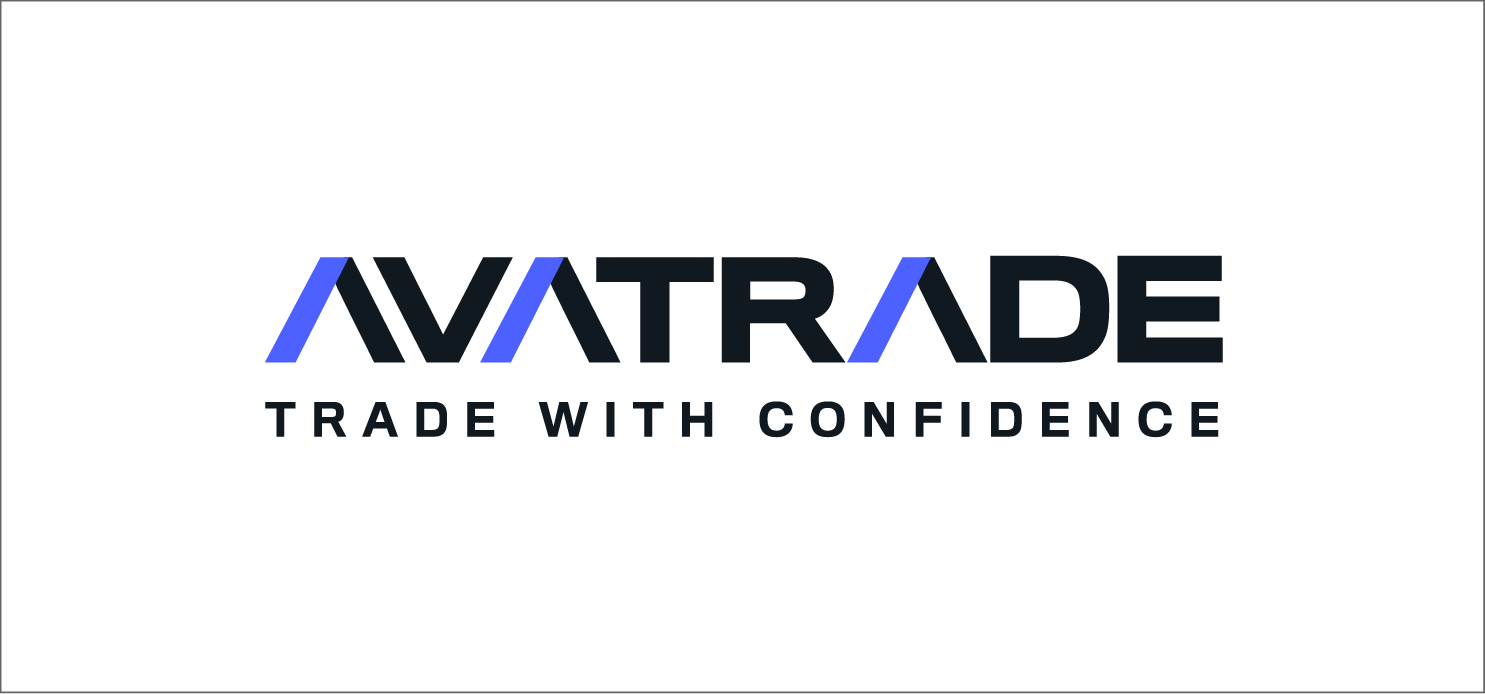Best 6 Trading Platforms in South Africa (2026 Review)
All products and services featured are independently selected by WikiJob. When you register or purchase through links on this page, we may earn a commission.
- A list of the Top Trading Platforms in South Africa for January 2026
- Comparison Chart of the Best Trading Platforms in South Africa for January 2026
- Description of the Best Trading Platforms in South Africa for January 2026
- What to Remember When Choosing a Trading Platform in 2026
empty
empty
empty
empty
empty
empty
empty
empty
- Top Trading Tips
- Frequently Asked Questions
- Final Thoughts
If you are interested in investing in the stock market but do not want to hire a stockbroker to do the work for you, it could be worth considering the various trading platforms which have become popular in recent years.
A trading platform gives you complete control over your investments while still having access to trade resources.
These platforms are run online, so you can have access to your investments anytime and in any place as long as you have an internet connection.
Each trading platform will be slightly different; therefore, they may not offer the same options and benefits.
It is important to consider all of your options before making a decision.
Note: prices stated in the article below are in $.
A list of the Top Trading Platforms in South Africa for January 2026
- Pepperstone
- AvaTrade
- Plus500 (CFDs only)
- IG Markets
- Saxo
- XTB
Regulation FCA, DFSA, CySEC, BaFIN, ASIC, CMA, SCB | Trading Platforms MT4, MT5, cTrader, TradingView, Pepperstone's own platform | Minimum Deposit $0 | |||
Platforms IG Markets | Regulation FCA, ASIC, CFTC, NFA | Trading Platforms IG Web Platform, MT4, L2 Dealer | Minimum Deposit $250 | ||
Regulation ASIC, FSCA, Central Bank | Trading Platforms MT4, MT5, AvaTradeGO | Minimum Deposit $100 | |||
Regulation FCA, ASIC | Trading Platforms Plus500 WebTrader (CFDs only) | Minimum Deposit | |||
Regulation FCA, CySEC | Trading Platforms xStation, MT4 | Minimum Deposit $0 | |||
Platforms Saxo | Regulation FSA, ASIC, FCA, others | Trading Platforms SaxoTraderGO, SaxoTraderPRO, MT4 | Minimum Deposit None |
1. Pepperstone
Pros
- Extensively regulated
- No minimum deposit
- Low fees and mostly free withdrawals
- Good customer service
Cons
- No investor protection for clients outside UK, EU and EEA
- Withdrawal fee for international bank wires
- CFDs only
Best for: Traders interested in forex CFDs
Assets and markets: CFDs in forex, indices, shares, commodities, ETFs
Account types: Standard, Razor, Professional with Active Trader Program, Demo
Pepperstone is an Australian CFD stockbroker, active in the UK and globally. It has created a trading app for each of the platforms it provides – TradingView, MT4, MT5, Pepperstone's own platform and cTrader.
The Pepperstone cTrader app is recommended for those new to trading or still finding their investment footing. The cTrader app provides the same trading experience that you would experience in the computer version.
Like Pepperstone offers social copy trading, but unlike its competitor, you may only trade CFDs with this broker.
The standard account is commission-free, whereas Razor account holders are subject to commission charges. There is no minimum deposit.
Withdrawal fees are charged for international bank wires.
2. AvaTrade
Pros
- Worldwide regulated
- Multiple platforms – MT4, MT5, etc.
- 20% welcome bonus
- Educational content
- Wide rage of payments methods
- Fixed spreads
Cons
- You can’t buy stocks
- Quarterly and annual inactivity fees
- Custumer support is not available 24/7
- No bonus for EU based clients
- No US clients accepted
- Imitated crypto assets
AvaTrade is a CFD Regulated broker with +1,000 financial instruments and multiple trading platforms. It has been operating since 2006.
It offers a 20% welcome bonus up to $10,000, according to regulation and a free 21-day demo account with $100,000.
Instruments include:
- Metals
- Commodities
- Stocks
- FX Options
- Oil
- ETFs
- Options
- Crypto currencies
- CFDs
- Indexes
- Shares
- Spread betting
- Indices
- Forex
- Bonds
AVATrade EU Ltd is regulated by the Central Bank of Ireland. (No.C53877) Ava Trade Markets Ltd. is regulated by the B.V.I Financial Services Commission. It is also highly regulated in Australia, South Africa, Japan, Middle East, Cyprus and Israel
You can not trade with AvaTrade in the US, North Korea, New Zealand, Iran or Belgium.
Mínimum deposit of $100, no withdraw limit and no fees.
3. Plus500
Pros
- No buy/sell commissions and tight spreads
- Leverage of up to 1:30
- FREE unlimited Demo
- 2,800+ trading instruments
- Real-time quotes and advanced analytical tools
- Fast and reliable order execution
Cons
- No API integrations
- No social copy trading
Plus500 instruments are available for trading exclusively via CFDs and the service offered on the platform is CFD-based.
The Plus500 trading platform offers investors a wide variety of products to trade within and requires a minimum investment of $100 or £100.
This platform is handy for those who do not speak English as their native language, as there are over 30 language options to choose from.
The platform is fully enabled and clutter-free, meaning that traders can enjoy a stress-free and straightforward experience.
4. IG Markets
Pros
- Highly regulated
- MetaTrader 4 (MT4)
- Over 10,000 instruments
- Available in the UK and US
- 24/7 customer support
Cons
- High fees
- No deposit compensation scheme for US accounts
- No copy trading
- Inactivity fees
Although IG Markets is a UK-based broker, they are one of the top names for South African trading platforms.
Accounts can be opened with as little as $1, although there is a minimum deposit before you can start trading.
Via the platform, users are able to access over 17,000 assets for trade. IG offers the option to try out demo accounts and is licensed by FCA, ASIC, CFTC and MAS.
5. Saxo
Pros
- Heavily regulated
- Good product portfolio
- Low forex fees
- No withdrawal fee
Cons
- Does not accept US clients
- High fees for options, futures and bonds
With a fully comprehensive array of over 40,000 options for trade, Saxo can seem like one of the best choices for someone wanting variety.
However, the $1,000 minimum deposit may mean that this trading platform is not an option for everyone.
If you can afford the high minimum deposit, you will find that there are many research and news options and zero commission and the security of trading with a well-regulated platform.
Overall, it is an excellent trading platform for those who can afford the initial outlay; however, it could be beyond some people's price range.
6. XTB
Pros
- Regulated by the FCA
- Low forex fees
- Fast withdrawal and deposit with no fee
- Live chat customer service
Cons
- No US clients
- Limited product portfolio
- High fees for stock CFDs
As a broker that you can trust, XTB is both well-regulated and listed on the stock exchange. The registered office is in Canary Wharf, London.
XTB offers investors and traders the opportunity to trade commodities, stocks, metals, forex, indices and cryptocurrencies, as well as ETFs and CFDs, and it is regulated in top-tier jurisdictions by FCA, CySEC, IFSEC and KNF.
Traders can easily open an account online and can choose between the commission-free Standard account or the Pro account that includes tighter spreads, but there is a commission that needs to be paid on all trades.
Deciding what platform to use to make your trades depends on your location – in most countries, you can choose MetaTrader 4 or the proprietary platform xStation (although MT4 is not available to UK customers).
XTB is a great choice for beginners thanks to the huge range of educational materials, categorized by level (beginner, intermediate and advanced) and the customer service options that are available only on weekdays.
There is a fully functional demo account so beginners can practice strategies and get used to using the platforms.
The more experienced trader will enjoy a huge range of research resources, including trading signals, technical analysis, details about different instruments, and even a heat map and market sentiments.
CFDs are complex instruments and come with a high risk of losing money rapidly due to leverage. 69-80% of retail investor accounts lose money when trading CFDs with this provider. You should consider whether you understand how CFDs work and whether you can afford to take the high risk of losing your money.

What to Remember When Choosing a Trading Platform in 2026
Knowledge
Your level of knowledge will impact what sort of trading platform would suit you best.
If you have much experience in this area, then you would benefit from a platform that has a wide variety of analytical tools.
Beginner traders will find that they are better suited to trading platforms that have a wide range of educational options so that they can learn as they go.
Does the Platform Offer Demo Accounts?
By using a demo account, you can learn to trade with simulated money.
This allows you to learn how trading works and create your strategy before trading your own money.
It is a good way of testing a trading platform before you decide whether or not you want to join.
Demo accounts are a handy feature for those who are new to the world of trading.
These accounts offer the option to see how different features work and are a great learning tool.
Customer Support
Levels of customer support will vary from platform to platform.
Some will offer 24-hour assistance, seven days a week, through a variety of methods such as web support and phone.
Others will only operate during office hours and may recommend contacting their support teams through email.
If you are very new to trading or struggle with technology, you could benefit from a platform that offers more options for support.
Educational Materials
Different platforms will offer different levels of educational materials.
Some will only offer materials that will give beginners the tools they need to get started, whereas others will be geared towards more experienced investors who wish to expand on their knowledge.
It is generally a good idea to find a platform that offers a mixture of both.
That way, even if you are a complete beginner, you will be able to get started; once you have learned the basics, you will learn more.
Nudges and Alerts
If you do not have the time to spend hours immersing yourself in the platform, you may want to choose one that offers nudges and alerts.
This can mean that you set limits, and the platform automatically executes orders for you.
Is It Compatible With Your Investment Strategy?
There are many factors to consider when thinking about your investment strategy.
Are you hoping for instant returns or long-term investment? Is there a specific type of investment that you would prefer over another?
Do you want to focus on investments solely in South Africa or across the globe?
There will be a platform that offers what you need; however, it is a good idea to be sure of what you want before deciding.
Ease of Use
Whichever platform you use, ensure it is one that you can navigate easily.
Each will be designed slightly differently; therefore, you will find that some are better suited for you than others.
If you are unsure which one will be best for you, find one which offers demo accounts so you can try it before you commit to investing your own money.
Security Features
As you will potentially be investing large sums of money, good security is essential.
You will want to ensure that whichever platform you choose has a two-step authentication process as a minimum requirement.
Some platforms with mobile app options will also offer fingerprint or face recognition as an added security feature.
Top Trading Tips
Before committing to a specific platform, there are a few things to consider.
This is especially important if you are brand new to the world of trading.
Doing sufficient research can help you to avoid making mistakes.
Step 1. Research the Different Types of Trading
There are numerous different forms of trading available to you.
Make sure that you do some research so that you can find the one that suits you best.
Step 2. Consider Taking a Beginners Course
If you have no trading experience, then an excellent place to start could be with a beginners course. Demo accounts are also another great way of learning the basics.
Step 3. Look Into the Tax Regulations for Where You Live
Some of the platforms available are used globally; therefore, it is important to make sure that you know what the tax regulations are for you.
This can help you avoid making any mistakes when declaring any earnings from your investments.
Step 4. Decide How Much You Are Realistically Able To Invest
It is important to remember that investment is not risk-free. There is always a chance that you could lose money.
You should never invest more money than you can really afford to risk, therefore; each platform will have a different minimum investment, so choose one that you are comfortable with
The best trading platform in South Africa will depend on an individual's specific trading needs and preferences.
Some popular options include EasyEquities, GT247 and Saxo Markets.
These platforms offer features such as low fees, easy-to-use interfaces and a wide range of trading instruments.
The cheapest trading platform in South Africa will depend on the specific fees and commissions charged by each platform.
Some options with low fees include FNB Securities, Standard Bank Online Share Trading and EasyEquities.
Luno is a popular cryptocurrency broker in South Africa. It allows users to buy, sell and store various cryptocurrencies, such as Bitcoin, Ethereum and Litecoin.
Other options include AltCoinTrader and VALR.
Yes, it is possible to use international trading platforms in South Africa. However, it is important to ensure that the platform is regulated and legally allowed to operate in the country.
Yes, online trading is legal in South Africa. However, traders must ensure that they use a regulated and licensed broker or platform to comply with the country's financial regulations.
Yes, foreigners can trade Forex in South Africa. However, they must comply with the country's financial regulations and use a licensed and regulated broker.
It is important to note that some brokers may not accept clients from certain countries.
Yes, traders in South Africa are required to pay tax on their trading income. The tax rate varies based on the individual's income level and tax bracket.
The average income of a trader in South Africa can vary widely depending on factors such as their level of experience, trading strategy and market conditions.
There is no fixed income for traders in South Africa, as their income can be unpredictable and volatile.
When choosing a trading platform in South Africa, it's important to consider factors such as the platform's fees, security measures, user interface, customer support and the range of assets available for trading.
It's also advisable to read reviews and compare different platforms before making a decision.
The minimum deposit required for trading platforms in South Africa can vary depending on the platform and the type of account.
Some platforms offer accounts with no minimum deposit, while others require a minimum deposit of several hundred or even thousands of South African Rand.
The risks associated with using trading platforms in South Africa include the potential for losses due to market volatility, technical glitches or system failures, and the risk of fraud or scams.
To learn more about trading platforms in South Africa, you can research different platforms, read reviews and guides, attend webinars or seminars, and speak with other traders or financial professionals.
It's also advisable to start with a demo account to practice trading before investing real money.
Final Thoughts
This is by no means a complete list of the traders available in South Africa; however, it should be considered a good starting point.
By beginning your research here, with the traders mentioned above, you will decide on the type of platform that will best suit your needs.
Remember, it is always a good idea to keep a close eye on both brokers and individual trades investing on any platform.
WikiJob does not provide tax, investment or financial services and advice. The information is being presented without consideration of the investment objectives, risk tolerance, or financial circumstances of any specific investor and might not be suitable for all investors. Past performance is not indicative of future results. Investing involves risk including the possible loss of principal.







